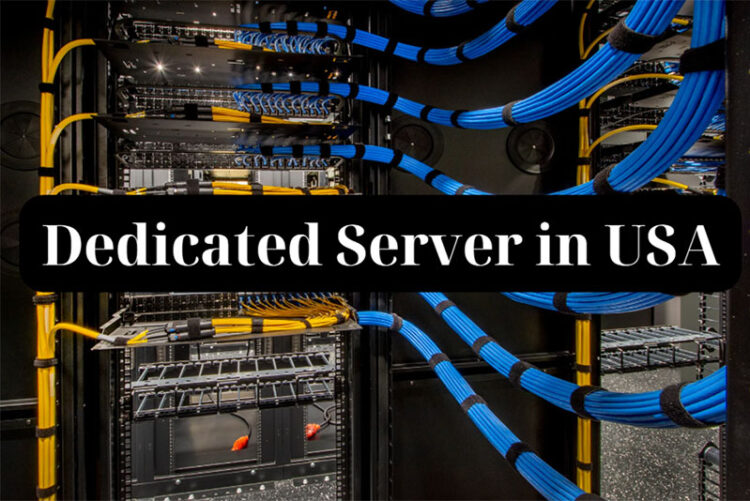Dedicated servers are essential for businesses that require high performance, reliability, and security. In this comparison, we will analyze five leading dedicated server providers in the US: VSYS.HOST, Leaseweb, Clouvider, Atlantic.Net, and HostDime. We will examine key factors such as pricing, hardware, support, network capabilities, and additional features to help you make the best choice for your business.
Comparative Table of Key Parameters
| Parameter | VSYS.HOST | Leaseweb | Clouvider | Atlantic.Net | HostDime |
| Starting Price | $95/month (Stinger) | $143.12/month (High Bandwidth) | $125/month (Supermicro E-2276G NVMe) | $247/month (Standard) | $284/month (Intel Xeon E3-1230 V5) |
| CPU | Xeon E5-2630V3 (8 cores) | From 6 cores (varies by model) | 6 cores (E-2276G) | 12 vCPU (6 cores) | 4 cores (E3-1230 V5) |
| RAM | 32GB DDR4 | From 16GB | 16GB DDR4 | 32GB | 16GB |
| Storage | 250GB SSD | From 480GB SSD | 512GB NVMe | 2× 480GB SATA SSD | 480GB SSD or 1TB HDD |
| Port | 1×10 Gbps | 1Gbps or 10Gbps | 10Gbps | 1Gbps | 1Gbps |
| Traffic | 1 Gbps Unlimited | 10TB to Unlimited | 50TB at 10Gbps | 10TB | 75Mb/s (~25TB) |
| Support | 24/7 Pro-Level Tech Support | 24/7 Technical Support | 24/7 Support | 24/7/365 US-based Support | 24/7 Managed Tier Included |
| Additional Features | Crypto-friendly, anonymous servers | NVMe SSD, GPU servers | RAID, DDoS Protection | HIPAA, PCI Compliance | DDoS Protection, IPMI, Synapse Monitoring |
Why VSYS.HOST Ranks First
1. Price & Performance
VSYS.HOST offers the most cost-effective pricing among all providers. For instance, the Stinger server at $95/month includes:
✅ 8-core Xeon E5-2630V3
✅ 32GB RAM
✅ 250GB SSD
This makes it one of the most competitive options on the market in terms of price-to-performance ratio.
2. Network Capabilities
VSYS.HOST provides:
✅ 1 Gbps unlimited traffic
✅ Low-latency connections
✅ 99.9% uptime guarantee
This ensures stable and high-speed connectivity, essential for businesses that rely on seamless network performance.
3. Anonymity & Crypto-Friendliness
VSYS.HOST stands out by offering:
✅ No KYC (Know Your Customer) registration
✅ Cryptocurrency payment options
This makes it an ideal choice for businesses that prioritize privacy and security.
4. Customization & Flexibility
Unlike many providers, VSYS.HOST offers tailored server solutions to meet specific business needs.
Choosing a dedicated server in USA depends on your business requirements, budget, and performance needs.
⭐ VSYS.HOST stands out for its competitive pricing, high performance, privacy-focused approach, and exceptional support.
⭐ If you need specialized services, consider:
- Leaseweb for GPU servers
- HostDime for enhanced security features
Regardless of your choice, VSYS.HOST is an excellent solution for businesses seeking a reliable, high-performance, and flexible dedicated server in the US.
Why Choosing a US-Based Server Can Impact Performance and Compliance
When selecting a hosting server, businesses often focus on cost and features, but location plays a crucial role in both performance and compliance. A US-based server offers several advantages, but it also comes with specific considerations, particularly regarding speed, data regulations, and cybersecurity laws.
Performance: Speed & Reliability
One of the most immediate impacts of choosing a US-based server is on website speed and reliability. Server location affects latency, which is the time it takes for data to travel between the user and the server. If your primary audience is in North America, a US-based server ensures lower latency and faster page loading speeds—a critical factor, given that:
- A 1-second delay in page load time can reduce conversions by 7% (Akamai).
- 53% of mobile users abandon a site if it takes more than 3 seconds to load (Google).
- Website speed impacts SEO rankings, as Google prioritizes faster websites in search results.
Additionally, US-based servers often feature advanced infrastructure, including Tier 3 and Tier 4 data centers, which guarantee 99.9%+ uptime and robust disaster recovery solutions.
Compliance: US Data Protection Laws & Global Standards
Choosing a US server also means falling under US regulations such as:
- The CLOUD Act (Clarifying Lawful Overseas Use of Data Act) – Allows US authorities to request data stored on US-based servers, regardless of where the customer is located.
- HIPAA (Health Insurance Portability and Accountability Act) – If you’re dealing with healthcare data, a US-based server must comply with HIPAA security protocols.
- PCI DSS (Payment Card Industry Data Security Standard) – Essential for e-commerce sites handling credit card transactions.
However, businesses that handle EU user data must also consider GDPR (General Data Protection Regulation). Hosting data on US servers might require Standard Contractual Clauses (SCCs) or additional legal frameworks to ensure compliance.
Cybersecurity & Risk Management
The US has some of the most advanced cybersecurity measures, but also some of the highest cyberattack rates. According to IBM’s 2023 Cost of a Data Breach Report:
- The average cost of a data breach in the US is $9.48 million, the highest globally.
- 80% of breaches involve sensitive personal data, requiring strict compliance with regulations.
- AI-driven cybersecurity systems reduce breach costs by up to 20%, making high-tech US-based hosting providers a strong choice.
Who Should Choose a US-Based Server?
A US-based server is ideal for:
✅ Businesses targeting North American users (lower latency, better SEO ranking).
✅ E-commerce sites handling US payments (PCI DSS compliance).
✅ Companies needing HIPAA-compliant healthcare hosting.
✅ Enterprises requiring high-performance cloud solutions with low downtime.
However, if you primarily serve EU-based customers, you may need hybrid hosting (US + EU data centers) to balance compliance and performance.
Choosing a US-based server isn’t just about location—it’s about speed, compliance, and cybersecurity. If your audience is primarily in the US, this choice ensures faster response times, robust legal frameworks, and industry-leading infrastructure. But if your operations extend globally, compliance with international data laws should be a top priority.
How Server Location Affects Speed and SEO Rankings
When choosing a hosting server, location is a critical factor that directly influences both website speed and SEO performance. Let’s break down how server location impacts these areas and why it matters for businesses targeting specific audiences.
1. Server Location and Website Speed
a) Latency and Load Times
Server location affects latency, which is the time it takes for data to travel from the server to the user’s device. The farther a user is from the server, the longer it takes for web pages to load.
To optimize speed for a global audience, businesses often use Content Delivery Networks (CDNs), which distribute content across multiple server locations worldwide.
b) Server Response Time (TTFB – Time to First Byte)
TTFB measures how quickly a web server responds to a request.
- Google recommends a TTFB under 200 milliseconds.
- Studies show that a server located in the same country as the user can reduce TTFB by up to 50%.
If your website is slow due to a distant server, it may negatively impact user experience and SEO rankings.
2. Impact on SEO Rankings
a) Google’s Core Web Vitals & Ranking Factors
Google uses Core Web Vitals to measure website speed, including:
✅ Largest Contentful Paint (LCP) – Should be under 2.5 seconds.
✅ First Input Delay (FID) – Measures interactivity speed.
✅ Cumulative Layout Shift (CLS) – Ensures visual stability.
A slow server location can increase LCP and FID, leading to lower rankings on Google.
b) Geo-Targeting & Local SEO
Google considers server location when determining local search rankings. If your business targets customers in the UK, for example, hosting on a UK-based server may improve rankings for searches performed in that region.
However, Google also relies on ccTLDs (Country Code Top-Level Domains) and Google Search Console settings for geotargeting, so server location is not the only factor.
c) Crawl Efficiency
- Googlebot crawls faster and more frequently when server response time is low.
- A slow server can result in fewer indexed pages, reducing your site’s visibility.
- E-commerce sites with thousands of product pages should prioritize a fast, well-located server to ensure search engines can efficiently crawl and index content.
3. How to Optimize for Speed and SEO
✅ Choose a server close to your target audience – If most of your visitors are from Europe, use an EU-based server.
✅ Use a CDN – Distributes content globally for faster access.
✅ Enable caching – Reduces load times for returning visitors.
✅ Monitor website speed – Use Google PageSpeed Insights or GTmetrix to analyze performance.
Server location plays a key role in website speed and SEO rankings. If your audience is concentrated in a specific region, selecting a server near them can boost performance, improve user experience, and enhance search rankings. For a global audience, integrating a CDN is the best approach to maintain fast speeds worldwide.






























